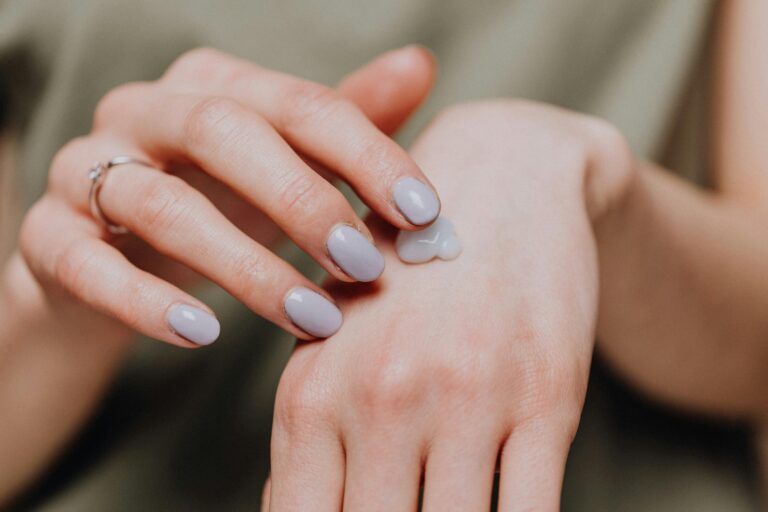Living with an autoimmune condition presents unique challenges, especially when it comes to maintaining a beauty routine. From sensitive skin to unpredictable flare-ups, individuals with autoimmune conditions often struggle to find skincare and makeup products that are gentle yet effective.
In this article, we’ll explore practical beauty tips specifically designed for those with autoimmune conditions, offering insights and strategies to help you navigate your beauty routine with confidence and ease.
Understanding Autoimmune Conditions and Their Impact on the Skin
Autoimmune conditions occur when the body’s immune system mistakenly attacks its tissues, leading to inflammation and a range of symptoms that can affect various organs and systems, including the skin.
Conditions like eczema, psoriasis, and lupus can manifest as skin rashes, redness, dryness, and sensitivity, making it challenging to find skincare and makeup products that don’t exacerbate these symptoms.
Understanding how autoimmune conditions affect the skin is crucial for developing an effective beauty routine tailored to your specific needs. By addressing underlying inflammation and focusing on gentle, nourishing skincare ingredients, you can help soothe and support your skin’s natural barrier function.
Skincare Tips for Individuals with Autoimmune Conditions
- Choose Gentle, Fragrance-Free Products: Look for skincare products that are free of harsh chemicals, fragrances, and irritants that can trigger flare-ups. Opt for gentle cleansers, moisturizers, and sunscreen formulated for sensitive skin.
- Moisturize Regularly: Keeping the skin hydrated is essential for individuals with autoimmune conditions, as dryness and flakiness are common symptoms. Choose moisturizers with hydrating ingredients like hyaluronic acid, glycerin, and ceramides to help lock in moisture and soothe dry, irritated skin.
- Protect Your Skin from the Sun: Sun exposure can exacerbate inflammation and trigger flare-ups in individuals with autoimmune conditions. Wear sunscreen with broad-spectrum protection (SPF 30 or higher) daily, and seek shade whenever possible to protect your skin from UV damage.
- Avoid Harsh Exfoliants: Steer clear of abrasive scrubs and exfoliants that can irritate the skin and exacerbate inflammation. Instead, opt for gentle exfoliating treatments with ingredients like alpha hydroxy acids (AHAs) or enzymes to remove dead skin cells without causing irritation.
- Patch Test New Products: Before incorporating new skincare products into your routine, perform a patch test to check for any adverse reactions or sensitivities. Apply a small amount of the product to a discreet area of your skin and monitor for any signs of irritation or redness.
Makeup Tips for Individuals with Autoimmune Conditions
- Opt for Hypoallergenic Formulas: Choose makeup products labeled as hypoallergenic, non-comedogenic, and fragrance-free to minimize the risk of irritation and allergic reactions. Look for products specifically formulated for sensitive skin or designed for use by individuals with autoimmune conditions.
- Use Clean Brushes and Sponges: Keep your makeup tools clean and sanitized to prevent bacterial contamination and minimize the risk of breakouts and infections. Wash your brushes and sponges regularly with a gentle cleanser and allow them to air dry thoroughly before use.
- Avoid Heavy, Full-Coverage Makeup: Heavy, full-coverage makeup formulas can feel suffocating on the skin and may exacerbate inflammation and sensitivity. Instead, opt for lightweight, breathable formulas like tinted moisturizers, BB creams, or mineral foundations that provide coverage without clogging pores or aggravating existing skin conditions.
- Remove Makeup Gently: Be gentle when removing makeup, especially around sensitive areas like the eyes and lips. Use a gentle, fragrance-free makeup remover or micellar water to dissolve makeup without stripping the skin of its natural oils.
- Give Your Skin a Break: On days when your skin is particularly sensitive or inflamed, consider giving your skin a break from makeup altogether. Focus on gentle skincare and allow your skin to breathe and heal without the added burden of makeup products.
Conclusion
Living with an autoimmune condition can present challenges when it comes to maintaining a beauty routine, but with the right strategies and products, you can achieve healthy, radiant skin while minimizing irritation and discomfort. By understanding how autoimmune conditions affect the skin and adopting gentle, nourishing skincare and makeup practices, you can support your skin’s natural barrier function and promote overall skin health.
FAQs
Q1: Can I still wear makeup if I have an autoimmune condition?
Yes, you can still wear makeup if you have an autoimmune condition, but it’s essential to choose gentle, hypoallergenic formulas and avoid heavy, full-coverage products that may exacerbate inflammation and sensitivity.
Q2: What skincare ingredients should I avoid if I have an autoimmune condition?
Individuals with autoimmune conditions should avoid skincare ingredients known to be irritants or allergens, such as fragrances, alcohol, and harsh exfoliants. Opt for gentle, fragrance-free products formulated for sensitive skin instead.
Q3: Can autoimmune conditions affect hair health and scalp conditions?
Yes, autoimmune conditions can affect hair health and scalp conditions, leading to symptoms like hair loss, dandruff, and scalp psoriasis. It’s essential to address underlying inflammation and use gentle, nourishing hair care products to support scalp health.
Q4: How can I manage skin flare-ups caused by my autoimmune condition?
To manage skin flare-ups caused by autoimmune conditions, focus on gentle skincare practices, avoid triggers like harsh chemicals and sun exposure, and consult with a dermatologist for personalized treatment options.
Q5: Are there specific makeup brands or lines that cater to individuals with sensitive skin or autoimmune conditions?
Yes, several makeup brands offer products specifically formulated for individuals with sensitive skin or autoimmune conditions. Look for brands that prioritize clean, hypoallergenic formulas and offer a range of gentle, skin-friendly options for makeup enthusiasts.



